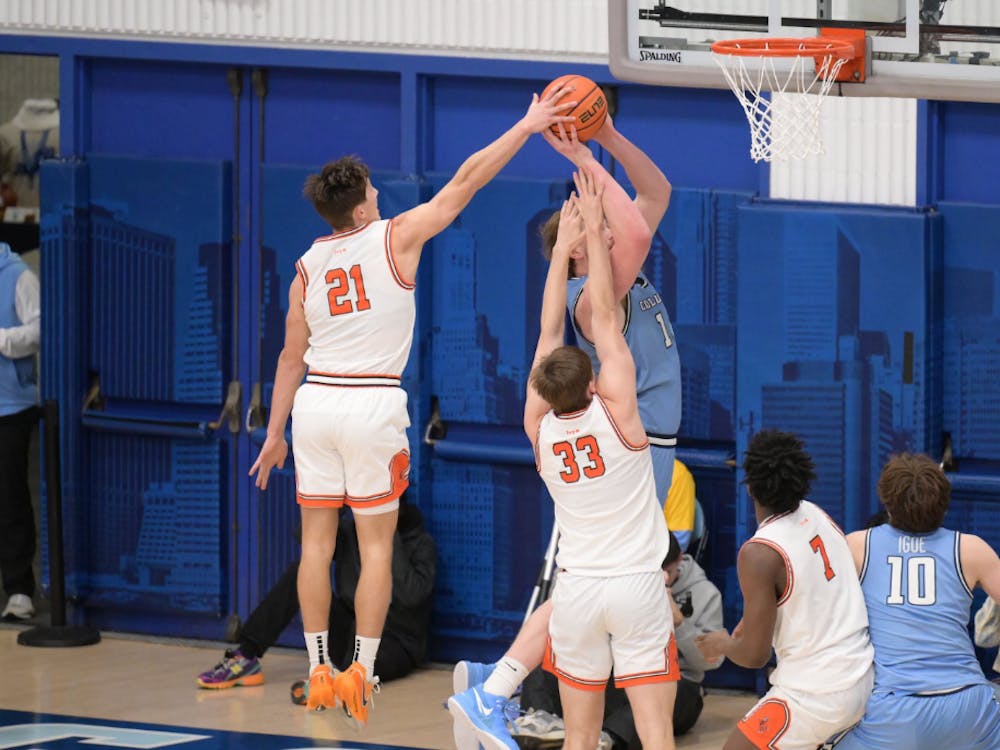I really am an eternal optimist. The glass is always half-full. I can see the silver lining in any cloud. After all, I'm a Cubs fan. A lifetime of grasping at straws and trying to see the future benefits of yet another postseason-less year has taught me well. You name it — I can turn a dire situation into one with at least a sliver of hope.
And October is normally my favorite time of year — except for April, when it always seems that this is going to be the Cubs' year. The World Series is sport's most exciting and most meaningful postseason event — even more so than the Super Bowl, in my mind. Even with the advent of interleague play. But I digress.
This year, the Olympics ran head-to-head against the final two weeks of baseball's regular season. While IOC President Juan Antonio Samaranch was content to call the Sydney Games the "best ever" — a title it will hold at least until Athens in 2004 — I would not dare to go so far. Because for me, the Olympics — and to a lesser extent, intercollegiate and professional sports — are all tainted by "doping."
The Olympics are supposed to represent everything that is right with the world of sports. In recent years, though, they have come to symbolize what is wrong with that world. Doping scandals have tainted most of the Games of recent memory — I can still see Ben Johnson streaking past my hero, Carl Lewis, in the 1988 Games in Seoul. How I lived for Lewis — when I was nine, I wanted to be Carl Lewis when I grew up. And I was crushed when he lost, but even more devastated when Johnson later tested positive for steroids. For the first time, I began to have doubts.
It just wasn't fair. East Germany gained a wide reputation for systematic doping — blatantly abusing the system. How does one explain that to all of the athletes who competed against them on a playing field that wasn't level? That they really had no chance of winning — that is not what sports are supposed to be about. Even though the policy has been exposed, there is no way to repay their contemporaries.
Intercollegiate sports are hailed as a time when athletes are still supposed to be competing for the love of the game instead of for the almighty buck. If only it were that simple. Intercollegiate athletics has become a high-stakes game, with more at risk than just wins and losses. And so, "for the love of the game" has largely fallen by the wayside.

I read an article in Sports Illustrated some time ago that essentially stated that athletes at all levels use performance-enhancing drugs and that you are hopelessly naive if you believe otherwise. It was filled with unattributed sources from various sports all asserting the same thing — in order to stay competitive on the field, many athletes feel that they have no choice but to use such drugs, regardless of the impact on their health or their livelihood if they are caught.
Now I'm not just talking about Mark McGwire using andro — that issue has been beaten to death. And andro is legal in baseball, anyway — whether you think that should be the case is a moot point here. I'm talking about the use of banned substances — be they steroids or the latest serum concocted to allow red blood cells to carry more oxygen. And I don't believe that their use is isolated to the Olympic realm or that of professional sports.
It would be hard for me to be convinced that such abuses do not occur on the college level — in fact, who's to say that it hasn't happened here at Princeton in recent years? This saddens and frightens me most of all.
What does this portend for the future? Where do we go from here? Removing the guilty parties from the team or even from the University is not enough. I don't really have an answer, though. Something beyond the NCAA's current policy of random drug testing of student-athletes? What steps can be taken that are short of the extreme measure of testing all athletes every day — something in violation of all sorts of rights and also plainly just not practical?

I do realize that fans do not pay to see ordinary athletes do ordinary things — like get bowled over when they run into a 260-pound defensive lineman or have their shot blocked every time they drive to the basket. We want to see the extraordinary.
I want to see Michael Johnson or Marion Jones turn the simple act of running into one of the most amazing feats of athletic prowess that you will ever see. I want to see athletes achieve the impossible. Does doing the unbelievable necessitate taking a substance like nandrolone?
I would not pay to see me. While I considered myself a good athlete in high school, I do not pretend that I am something I am not. My dreams of being Carl Lewis faded as I grew older and entered middle school. And that is what it boils down to, in my mind. I am not accusing every professional and collegiate athlete of cheating — not by any means.
But those of you that do, spoil it for your fellow athletes who choose to remain clean. Unfortunately, the most enduring moments and memories of the Sydney Games may not be of athletic feats, but rather more along the lines of C.J. Hunter's answers about his drug tests. Now, when someone shatters a world record, people wonder if he or she was taking something.
Every athlete may soon be presumed guilty until proven innocent.







